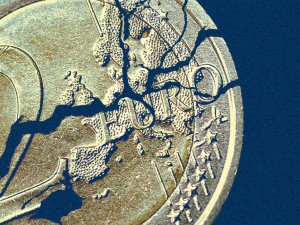
Running a successful business requires one to keep an eye on several moving parts. Of the components related to a business’s returns, the exchange rate between relevant currencies is one of the most important. For example, a company trading internationally will likely have multiple suppliers abroad, or you may be exporting to foreign markets and have a need to repatriate profits back home. MiniMultinationals develop a robust strategy for dealing with exchange rate fluctuations. Ignoring these trends can result in an outsized negative impact on their bottom line depending on conditions.

Foreign currency rates for the yen, yuan, euro, baht and others fluctuate for several reasons, and these shifting valuations must be factored into the cost of doing business. Imagine that you’re based in the United States, importing goods from companies based in the EU. Typically, you’d be asked to convert dollars to euros and then pay, so when the dollar is strong against the euro, you end up paying less for the same order. If the value of the dollar weakens in relation to the euro, you’re giving away more dollars, comparatively.
There are several reasons for currency fluctuation. Inflation in the currency’s home country is a determining factor, as countries with low inflation generally have money with greater purchasing power, and therefore a rising value relative to other currencies. The opposite is also true. High inflation leads to a currency with less relative value. Inflation is itself sensitive to changes in interest rates, which is itself another prominent catalyst for exchange rate volatility as well.

Countries that want to encourage loans will direct their central banks to alter the interest rate, which is the base rate at which lenders can borrow from the central bank. From there, lenders turn around and lend those sums, making their capital available to borrowers for a rate above the base borrowing costs set by the central bank. Higher interest rates entice foreign capital (and resident businesses) to borrow from the country, thereby increasing the exchange rate in favor of the lending country. It’s a simple game of supply and demand: which currency is beneficial to borrow at any given time? Which isn’t? The benchmark interest rate is a big determinant.
Another crucial factor, and one that is often overlooked, is the country’s budget. Countries that borrow to fund infrastructure projects, military spending and other expensive efforts must also contend with a lower value for their currency. Currency from these countries is in less demand because of the greater chance for default, higher inflation from adding to the money supply, and more. Firms must be vigilant of the economic sentiment in the countries that they’re headquartered in, but also those with which they conduct business.




